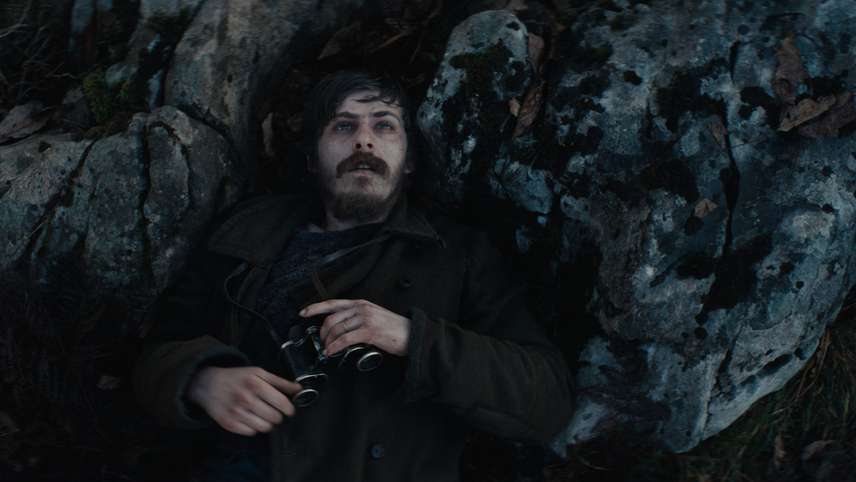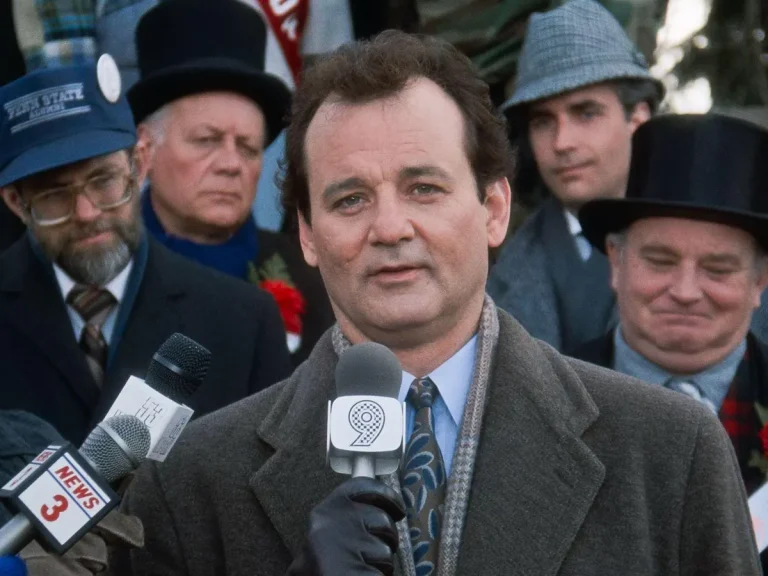Bruno Anković’s “Celebration” fascinatingly tells a story in reverse. We begin with an evocation of the end and then are led to retrace our way back through what has transpired. The film wholly abandons the slightest trace of exposition. In fact, the background framing of what we watch is allowed to explicitly express itself only once things wind up.
This deliberate eschewal of contextual markers is a bold gamble by the film, which, I suspect, will play vastly differently with varying groups of audiences. While it’s undeniably novel and provocatively intelligent to pepper in fuller glimpses of the broader picture informing the daily circumstances we witness, Jelena Paljan’s screenplay adapting Damir Karakas’ eponymous short novel isn’t adept or revealing in its plumbing of a profound systemic rot.
It’s pretty clearly established right off the cuff that this film doesn’t just have any inclination to include a heavy mass of events that usually accompany such period dramas, especially those set in wartime, but actively seeks to chip away at historical veneers. Instead, Anković wishes to entirely direct our attention and empathy to the journey of the protagonist, Mijo (Bernard Tomić), over a decade-and-a-half-long expanse told in discrete fragments before he ends up on the wrong side of history.
The scaffolding of history’s severe, reproachful judgment is stowed aside to let us be intimately acquainted with how people could be lured into the folds of fascist promise in the midst of enduring a grubby, punishing life. However, there’s a considerable reserve in the film’s handling of its mood-oriented storytelling. No emotion is allowed to bob to the surface in this patchwork structure, which renders a vagueness and fuzziness to the internal landscapes that underpin the film.

The constantly subdued tone diminishes, in its artful restraint, the sheer grime and misery that was commonplace scenery for young Mijo. Be it a pressing paucity of basic food or his ailing grandfather who willingly extricates himself from his family, aware that he may burden them in such steep times, Mijo experiences it all.
“Celebration” pecks at many implications that highlight its protagonist’s present state. Still, the episodic telling can’t mine power or a persuasive argument from the two flashback fragmented chapters, one set in the winter of 1926 and the other in the spring of 1941. There’s another brief spell situated in the summer of 1933. Mijo’s boyhood and early adulthood are encompassed in these chapters, as well as his circumstances, which are steeped in poverty. Grueling hardships and bleakness rife in his village are what slowly lead them towards what the glory of the Nazi puppet state, established in Croatia in 194, posited as its headiest attraction.
After the state fell, the armies were disbanded, and members of the defeated militia fled into the depths of the mountains. Mijo is one of those hiding it out in the woods. He’s convinced there’s still hope and refuses to surrender to the partisan soldiers determined to uproot scores of people like him. His wife, Drenka (Klara Fiolić), surreptitiously sneaks out with food and helps him somehow scrape by in the woods. Even she pleads with him to surrender. He asks if she thinks he can survive if he turns himself to the forces. Her silent acknowledgment of the inevitable has all the brutal answers.
There’s a lot of mundane atmospherics packed into “Celebration.” While it is indubitable, some passages hit with raw force and pathos, like the giving away of a mutt or his grandfather’s sacrifice, the power is lost in the carefully clipped approach. The fragmentary style doesn’t cohere with the gravitas it should have, nor do the few relationships in the film summon any ache or feeling. “Celebration” feels too polished and muted, filled with an inchoateness that’s more unsatisfying than aiding an interpretive thrust. In this regard, the fact-laden epilogue note comes off as insecurely buttressing and lending more weight to the film since it cannot stand on its own.



![The Oak Room [2020]: ‘Fantasia’ Review – A film that uses storytelling as a currency](https://79468c92.delivery.rocketcdn.me/wp-content/uploads/2020/08/The-Oak-Room-Movie-Review-highonfilms-2-768x288.jpg)
![[Watch] The Unexpected Popularity of RRR in the West Explained](https://79468c92.delivery.rocketcdn.me/wp-content/uploads/2022/12/The-Unexpected-Popularity-of-RRR-Explained-768x432.jpeg)
![Fashionista [2017]: Fantasia Film Festival Review](https://79468c92.delivery.rocketcdn.me/wp-content/uploads/2017/08/1257888_Fashionista-Amanda-Fuller-1.jpg)


